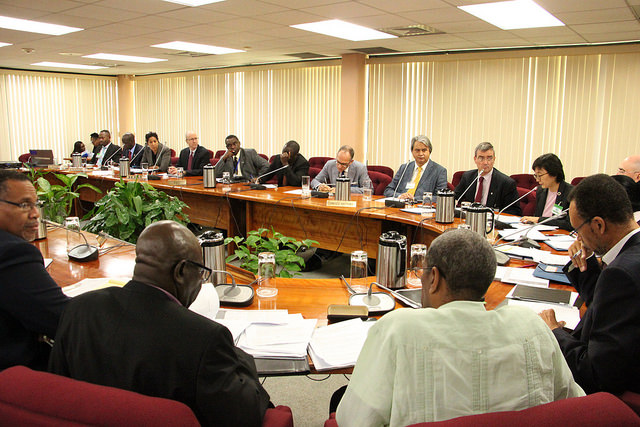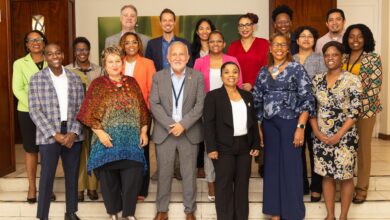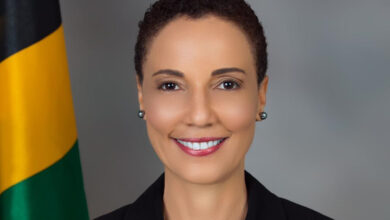United Nations (UN) Permanent Coordinator in Guyana, Ms Mikiko Tanaka on Friday underscored the critical importance of regional cooperation amidst fundamental shifts spawned by changes in policies of the US and Britain vis-a-vis the EU.
She expressed this conviction at the onset of discussions between the CARICOM Secretariat and the UN System in Caribbean on mechanisms for the effective implementation of the 2030 Agenda for Sustainable Development. The Meeting of the Regional Steering Committee of the CARICOM/UN Multi-Country Sustainable Development Framework in the Caribbean was convened on Friday 2 June at the Headquarters of the CARICOM Secretariat.
Even as the CARICOM Secretariat and the UN were leveraging multilateralism to advance the implementation of the 2030 Agenda, both the CARICOM Secretary-General, Ambassador Irwin LaRocque and Ms Tanaka expressed disappointment with the Trump Administration’s announcement of withdrawal from the Paris Climate Change Agreement.
Stating that an appropriate response was needed, Ambassador LaRocque said the parties to the Agreement “have to keep on going,” adding that Small Island Developing States (SIDS) like those of CARICOM were “most challenged by Climate Change.”
Echoing that sentiment, Ms Tanaka said the people of the Caribbean and SIDS countries were among the first to suffer from rising sea levels and extreme weather occurrences. She stated that the Trump administration’s pullout from the Paris Agreement “threatened to reverse strenuous global efforts in recent years to put a brake on climate change.”
In addition, she posited that historical dependency of trade, migration and remittances of Caribbean states and their people in the US, UK and Europe may also be at a turning point, and proposed there should be “paradigm shifts” in the way economies, governance and societies operated in the Caribbean.
Underscoring the role of CARICOM in this era, she said it had been at the center of forging cooperation, contributing to important regional and global initiatives, and responding to complex challenges of recent years.
“At a time of unprecedented risks and challenges for the world and region, multilateral cooperation at global and regional levels becomes more important than ever,” she stated.
She acknowledged that development assistance also required a paradigm shift, but said that 20 UN agencies had signed the Multi-country Sustainable Development Framework (MSDF) with 18 countries and territories in the Caribbean. Explaining that the MSDF committed the UN system to working with them to make needed transformations to achieve the SDGs, she added it was the first regional UN development assistance framework that will enable stronger cooperation with CARICOM institutions to tackle common challenges.
The Forum’s discussions builds upon the areas for strategic intervention which were agreed at the Eighth Biennial Meeting of CARICOM and the UN System in July 2015 in Georgetown, Guyana. They included capacity building for the Secretariat and CARICOM Institutions, and support for an effective institutional platform to enable the Region to implement the SDGs, the goals of the Samoa Pathway, and the 2030 Development Agenda. Against this backdrop, Ms Tanaka noted the UN was interested in sustaining productive partnerships in addressing the new challenges facing the Caribbean.
The discussion, which was described by CARICOM Secretary-General as a commendable approach in advancing the 2030 Agenda, involved UN Resident Coordinators from Jamaica, Trinidad and Tobago and Suriname, Barbados and the OECS, Belize and Guyana; and UN Agency Representatives from the FAO, PAHO/WHO, UNAIDS, UN Environment, UNESCO, UNFPA, UNHCR, UNDP, UNICEF, and UN Women.
Ambassador LaRocque told the representatives that the Community had found synergies between the Community Strategic Plan 2015-2019 and the 2030 Agenda. He pointed out, however, that the Community was challenged with capacity to implement the goals of the 2030 Agenda for Sustainable Development. As such, collaboration, coordination and assistance were critical.






